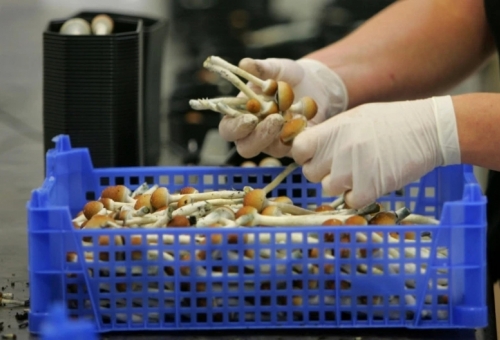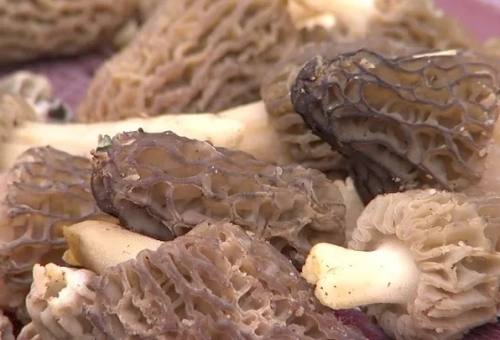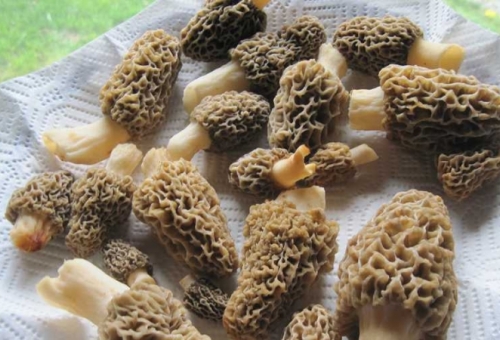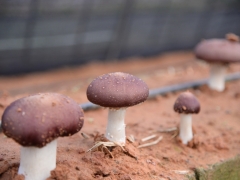There is currently a food revolution going on. Locally grown food is making permanent inroads into the food we eat, and the way we think about food.
One of the new vendors at the Culpeper Farmers’ Market this year is North Cove Mushrooms. Robin Burke extended an invitation to Terry and me to see their production facilities, so we took a short trip out to Brightwood.
I thought I knew a little bit about growing mushrooms, but that turned out not to be true. Years ago, someone I knew was growing shiitake mushrooms, so I went out to take a look. He had some oak logs out in his woods that he kept damp with a garden hose. I don’t recall actually seeing any mushrooms, but that was the image I had of growing shiitake mushrooms.
Robin and her husband Eason built a high-tech, state-of-the-art mushroom growing facility that is unlike anything I have ever seen. It is built on 10 acres from Eason’s grandparent’s Madison County farm.
The building itself has a steel frame, and the outside skin looks like the heaviest tarp that I have ever seen. Robin tells me that the skin is rubberized, three plies thick, and if it were ever punctured, it would seal itself.
Under the outside skin is thick fiberglass insulation, and finally a rubberized inside skin. This construction is not only heavily insulated, but the building is completely water and air tight. When the mushrooms are growing, they must be kept warm and in 95% humidity. This construction is ideal for maintaining that kind of environment.
Robin and Eason currently grow shiitake, and blue and yellow oyster mushrooms. They are getting ready to expand their offerings with maitakes, which are also known as hen-of-the-woods mushrooms.
The varieties are each grown very differently. The shiitakes are grown on blocks made of oak chips and millet. The blocks look like they are maybe a foot long and 6 inches square. They buy the blocks with the spores already in them. Then they meticulously clean the blocks to remove every trace of mold, and then soak the blocks in water. The blocks are then moved to stainless steel racks in the growing room.
They start about 100 shiitake blocks each week.
The oyster mushrooms are grown in a mixture of straw and cottonseed hulls. Some of them are grown in plastic bags of the mixture hung from the ceiling. Holes are punched in the sides of the bags for the mushrooms. Some of the oyster mushrooms are grown in what are called filter patch bags on the stainless steel racks.
North Cove picks the mushrooms every day, so they are always fresh. They sell their mushrooms at three farmers’ markets, including the Saturday morning Culpeper Farmers’ Market. They also make deliveries to local area restaurants.
Right now, about half their business comes from the farmers’ markets, and half from the restaurants.
Mushrooms can be temperamental about their environment. When we had that ferocious wind storm five of six weeks ago, Robin and Eason lost their power for several days. Mushrooms, unlike green plants, give off CO2. Without electricity, the ventilation system was off and the CO2 built up to the point that it killed many of the mushrooms.
The day Terry and I were there, they were installing a Generac propane generator.
These are specialty mushrooms with rich flavors. Robin assures me that roasted shiitakes taste like bacon. It is just one more example of the freshness and variety of locally grown food.
























